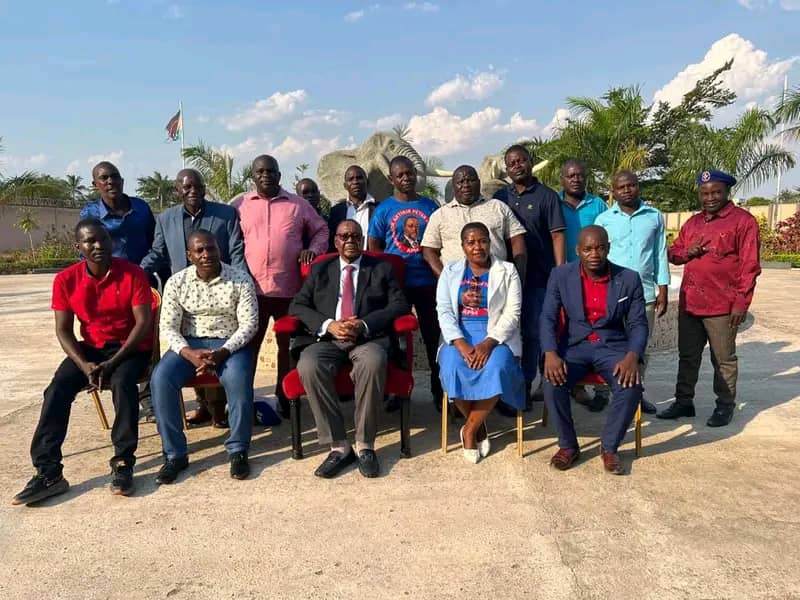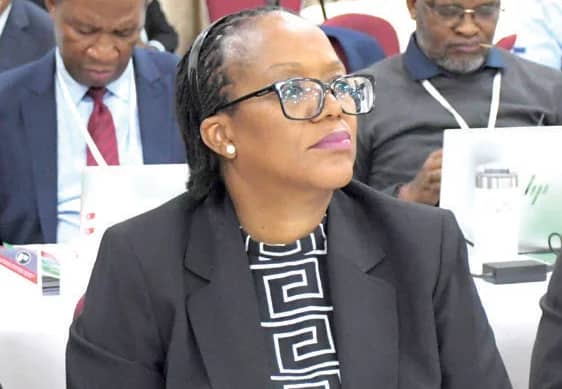By Burnett Munthali
Former President Arthur Peter Mutharika’s recent engagement with councillors from Mangochi District at his private residence, PAGE House, marked a pivotal moment in Malawi’s political landscape as the country prepares for the 2025 elections. Mutharika’s emphasis on infrastructure and tourism as dual pillars for Mangochi’s growth indicates a strategic approach that seeks not only to win local support but also to redefine regional development in Malawi. This analysis explores the broader implications of his vision for Mangochi and assesses its potential impact on the nation’s development agenda.
1) A strategic focus on Mangochi’s potential
Mangochi’s geographic location along Lake Malawi and its historical appeal provide a unique advantage for tourism and economic diversification. Recognizing this, Mutharika’s focus on Mangochi highlights his understanding of the district’s untapped potential. By proposing substantial investments in infrastructure and positioning tourism as an economic engine, Mutharika aims to establish Mangochi as a case study for regional development.
This vision suggests a shift from a reliance on agriculture alone to a multi-sector approach, where tourism becomes a cornerstone of growth. Should Mutharika secure the presidency in 2025, his success in Mangochi could create a model for developing other regions with specific strengths, which could lead to more balanced economic development across Malawi.
2) Infrastructure: The foundation for growth
Mutharika’s pledge to invest in road networks and public facilities addresses one of Malawi’s critical developmental bottlenecks: infrastructure. For a country where inadequate transport routes limit trade and connectivity, Mutharika’s focus on robust road networks in Mangochi could catalyze both tourism and local commerce. Improving accessibility to and within Mangochi is essential to attracting investors and tourists, as well as enhancing residents’ quality of life.
Moreover, improved infrastructure has the potential to create jobs, facilitate market access for local businesses, and strengthen Mangochi’s integration into the national economy. Such development also sends a strong message about Mutharika’s approach: a focus on tangible projects that produce visible, immediate benefits for communities, which could resonate with voters.
3) Tourism as an economic driver: The ripple effect
Tourism has long been underexploited in Malawi, despite the country’s rich natural and cultural resources. Mutharika’s vision for Mangochi to become a premier tourist hub could catalyze a significant economic transformation if effectively implemented. His approach to partnerships with private and international stakeholders for hotels, resorts, and leisure facilities demonstrates his understanding of tourism as an interconnected industry with ripple effects across other sectors, from hospitality and transportation to retail and agriculture.
By elevating Mangochi’s status in the tourism sector, Mutharika’s plan could help address issues like unemployment and youth migration. Jobs created by tourism development would not only empower local populations but also help retain talent and skills within the district. Additionally, revenue from tourism could contribute to local government budgets, enabling sustained investments in public services and amenities.
4) Political engagement and community-centered development
Mutharika’s engagement with Mangochi’s councillors shows an intentional effort to strengthen local governance. By opening dialogue with these leaders, he positions himself as a candidate who values collaboration and grassroots input—a potentially powerful move for a politician looking to broaden his base.
The councillors’ enthusiastic response indicates a readiness among local leaders for change and a willingness to collaborate with a national leader who prioritizes their needs. This relationship-building strategy could reinforce Mutharika’s support in Mangochi and other districts that feel neglected in terms of development, especially in areas where local leaders are influential in shaping community opinions.
5) Mangochi as a bellwether for Mutharika’s broader campaign strategy
The attention Mutharika has given Mangochi signals a larger campaign strategy aimed at regional and issue-focused development. By demonstrating a commitment to address specific needs at a local level, he may aim to draw votes from districts with distinct identities and challenges. Should Mutharika’s plans for Mangochi come to fruition, he could establish himself as a leader who not only promises development but delivers it, distinguishing himself from his competitors.
Furthermore, his approach aligns with the trend of candidates moving away from broad, one-size-fits-all policies to targeted interventions that resonate with local priorities. This strategy could make Mutharika a formidable contender in the 2025 elections, especially among constituencies seeking a leader attentive to their unique needs.
Conclusion: Can Mutharika’s vision for Mangochi become a blueprint for Malawi?
Professor Arthur Peter Mutharika’s vision for Mangochi, as outlined in his meeting with the district’s councillors, suggests a pragmatic and growth-oriented approach to Malawi’s development. By prioritizing infrastructure and tourism, he seeks to transform Mangochi into a model district, showcasing the potential benefits of a focused, regionalized development strategy.
As the race for the presidency heats up, Mutharika’s plan for Mangochi could become a litmus test for his broader goals for Malawi. If he follows through on these commitments, he could redefine Malawi’s political landscape by showing that sustainable, community-centered development is achievable. The success of this vision depends not only on electoral victory but also on the consistency of his focus and the resources allocated to these initiatives. Mutharika’s promises have garnered support and optimism among Mangochi’s leaders; however, the real test will lie in turning these ambitious goals into reality.




